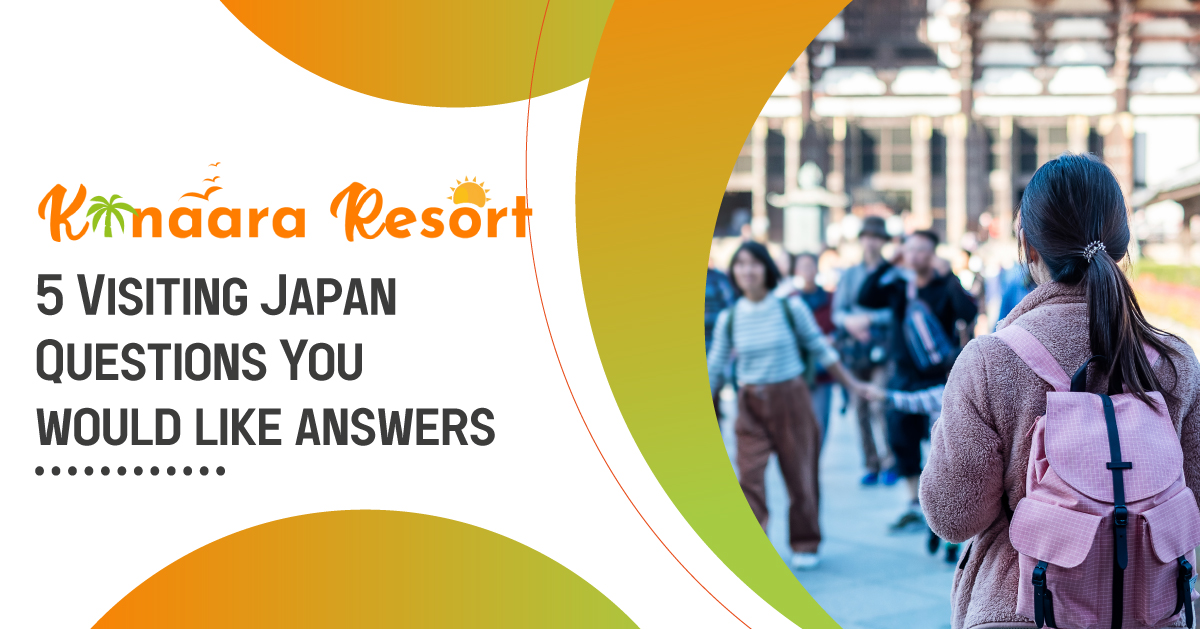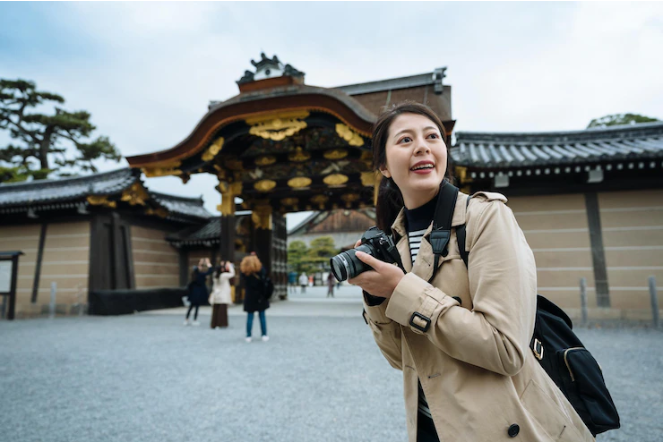5 Visiting Japan Questions You would like answers
Japan is one of the world’s most exotic and accessible destinations.
That said, there are a few things you should know when you visit alone or for the first time, before hopping on a plane. The questions that are asked by the first visitors of the land of the Rising Sun are replied to in five common.
Table of Contents
Do I have to speak Japanese for Japanese?
Many urban Japanese, particularly tourist residents, are able to speak basic English at least. But many would be as fluent as Americans or Europeans would be foolish.
You will find it increasingly difficult to understand away from the bigger cities if you speak English alone. Even with service staff, this will be the case.
Therefore, when in the country, it is prudent to know some basic Japanese phrases. Words and phrases such as ‘excuse me,’ ‘thank you,’ ‘where toilets are,’ ‘help,’ etc.
You might want to furnish yourself with phrase cards when you visit small towns and places away from the main routes of travel. Make sure the cards are written in Japanese and not translations romanized. The latter invites only confusion.
Is it safe for Japan?
Japan is one of the world’s safest countries for both solo and family travellers. This does not mean, however, that it is non-crime. What should be noted for travelers is the following:
It is best avoided in the late evening to have the red light/ party districts like Kabukicho Tokyo. You might encounter rowdy groups of drunk men although they’re not particularly dangerous. In their efforts to bring you to questionable establishments everything could also be aggressive.
It is stupid to enter dark alone and deserted parks in the night, as everywhere else in the world.
As in any other part of the world, in a small group or without a professional guide, you shouldn’t go into the desert alone.
For decades in Japan, sexual interference with crowded public transport has been an issue. Over peak hours, women might want to avoid crowded subway and coach services.
What is Japan’s best time to visit?
Japan has many beautiful activities and attractions all year round to experience every season.
In other words, from June to September you could want to avoid the months. Apart from the famous Japanese summer, this is a typhoon season. When you hit a particularly violent city, it could lock up whole cities. Public transport also stops and the risk of flooding frequently occurs.
The best days of journey are the corresponding weeks from early October to mid-December. In general, the weather is clear and dry, apart from the wonderful autumn leaves for you to enjoy.
It can be also pleasant to watch the Cherry-Blossom week from March to mid-April. Note, however, that frequent showers can happen during these weeks. It’s also common in these weeks to be brief but sudden cold.
Which attractions are the best in Japan?
This depends very much on your interests, of course. The following are generally considered Japan’s best attractions.
Well-known castles like Osaka Castle, Matsumoto Castle and Nagoya Castle. Although not many things are usually seen in the cards, their majestic exterior is wonderful to look at.
Japanese gardens of international reputation, such as Kanazawa’s Kenroku-En, Rikugien Tokyo,…
Natural marvels like Matsushima and Yakushima.
Historic temples like Senso-ji Tokyo, Kyoto Temple Kiyomizue, Nara Todai-ji, and so on.
Shinto Shrines such as Itsukushima Shrine are visually impressive.
Modern marvels of architecture, like Tokyo Skytree.
With its crowds, priceless service makes it a pleasure to visit all Japanese theme parks. Medieval subjects could also be fun for samurai and ninjas fascinated travelers.
A rustic hot spring or a complex public bath, Japanese-style swimming is a must-see experience.
Historical marvels, like Kyoto’s astonishing Golden Pavilion, Kamakura Grand Buddha, etc.
Mount Fuji is naturally also there. Hidden behind the fog is the tallest mountain in Japan, but a complete look at that is soon forgotten by a few.
Before I go to exotic Japan, what else must I know?
There are different tabous in Japanese society. The most important people to know for foreigners are:
Don’t wear indoor your shoes. Modify to the provided slippers.
Clean before entering the main pool when in a hot spring or a public bath. If you are still soapy, don’t enter.
Do not engage in anti-social or hazardous behaviors like littering, public transport, jay walking, etc.
Do not speak on public transport handsets. Switch to vibrating mode, also known as “manner” mode in Japan.
Of course, at temples and shrines be respectful.
It’s not a must, but some basic knowledge of Japanese history and culture will enhance your visit significantly.
Finally, use online services like Google Maps to determine your hotel locations, etc. Often Japanese roads are marked in confusion, and there are not always English signs.
If you’re using rail transport, you should also use service such as Hyperia.com to determine your routes. Here, note that a lot of Japanese train stations have very similar names, but in reality they can be far from each other.







